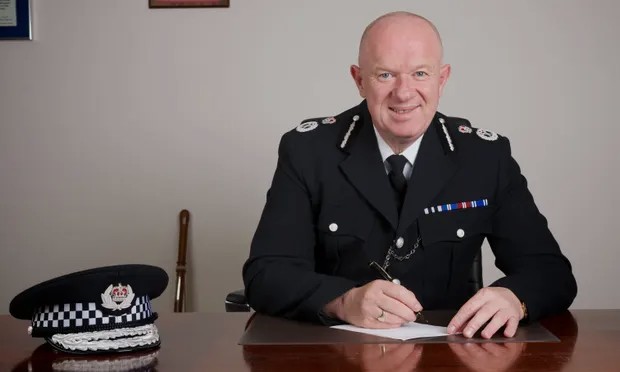Retiring head of Merseyside force says if he had £5bn he would spend 20% on policing and 80% on cutting poverty.
“If you give [someone] a legal opportunity to actually earn money, a legal opportunity to actually have a good standard of living, a number of people would take that because they know they can sleep in their beds at night … they don’t have to worry about what’s happening with the kids and what’s happening with their families and the doors going through at seven in the morning.”
Cutting poverty and inequality is the best way to reduce crime, a police chief has said, calling for more money for deprived areas to thwart criminals’ attempts to recruit those left desperate by deprivation.
In an unusually frank interview for a senior officer, given to mark his retirement as chief constable of Merseyside police, Andy Cooke said that if he was given £5bn to cut crime, he would put £1bn into law enforcement and £4bn into tackling poverty.
“The best crime prevention is increased opportunity and reduced poverty. That’s the best way to reduce crime. So there needs to be substantial funding into the infrastructure of our inner cities and our more deprived areas.
“Why do people get involved in crime and serious crime? It’s because the opportunities to make money elsewhere aren’t there for them. And never more so than in our inner cities and in our more difficult to police areas.
“We need to reduce that deprivation and the scale of deprivation that we see in some of our communities, because if you give people a viable alternative, not all but a lot will take it.”
He said children educated at “some of our tough schools” needed something to look forward to other than a life of crime, and that opportunities for apprenticeships needed to be increased. “If we don’t do that, then policing will always be on the back foot,” he said.

Comments
No comments yet. Be the first to react!